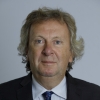GCSE Exams – Could academia point the way to a better form of assessment?

We can have years of education hinge on a handful of exams that employers barely even register any more – or we can test what our students know in a fairer, richer way, suggests Steve Kenning…

A few years ago, I met with representatives of McKinsey – a global management consultancy company that was running a boot camp for university graduates who had secured jobs. The purpose of the sessions was to get them work-ready by helping them develop non-formally assessed ‘power skills’, such as teamwork, critical thinking and problem-solving.
Seeing the sessions in action was a pivotal moment, prompting me to question what at that point had been my 37 years in education as a teacher and school leader.
I’ve observed thousands of lessons throughout my career. While I’d class most as ‘good teaching’, they consisted largely of teachers imparting knowledge that will help students pass exams. And on many such occasions, I could see how passively disengaged the students were.
My meeting with McKinsey took place five years after I co-founded the Aspirations Academies Trust, and planted the seed for what would eventually become our unique ‘No Limits Curriculum’. This combines traditional learning with project-based learning, in order to help students develop attributes that are important to employers.
Exams aren’t working
A common thread amongst employers I’ve spoken to over the years is that the workplaces of today are worlds apart from those of a generation ago, and places where exam results no longer hold the same value they once did.
This year, thousands of young people across the country returned to sitting GCSE and A-level exams for the first time in two years, post-COVID. However, it marked the return of an assessment model that’s over a hundred years old, and which labels as many as a third of young people, often from disadvantaged backgrounds, as failures.
The young people sitting those exams will have been in education for up to 13 years. During that time, they will have handed in countless assignments and contributed to a multitude of different activities, yet almost the entirety of their education will be judged solely on their performance in written, high-stakes exams or tests.
Globally, we’re seeing a trend towards more effective forms of assessment that not only measure what students know or can recall, but also how they’re able to use the skills they’ve learned and apply their knowledge.
Real-world learning
The real world isn’t confined to one single subject, so why would we ever teach it that way?
Our KS2/KS3 No Limits Curriculum – which uses applied transdisciplinary learning (ATL) – and our Y12 Aspirations Employability Diploma (AED) both focus on project-based learning. Project-based learning itself isn’t a new idea, but what distinguishes the Trust’s approach is that we run ATL assignments in government-funded schools.
Instead of overturning our conventional curriculum – which still follows all government guidelines – we’ve adapted it to incorporate ATL and the AED. ATL and No Limits provide our young students with opportunities to apply subject learning to real-world problems. This in turn helps to build the interpersonal skills, collaboration, initiative and resilience they’ll need to succeed.
Alongside their usual subjects, pupils have six ATL lessons a week. Through a ‘driving question’, students may, for instance, explore the theme of climate change. These driving questions provide students and teachers with a learning purpose, and are designed to be engaging, provocative and open-ended, with several possible solutions. Through answering them, pupils are taught key workplace traits, including interpersonal and communication skills.
In this instance, the driving question might be, ‘How can we, as global citizens, understand climate change in order to initiate eco-friendly practices at our academy?’ Pupils will first learn about the geographical and scientific aspects of climate change in their individual subjects. Then, during their ATL lessons, they’ll come together and take on assignments that explore how climate change impacts upon people in the real world, what’s being done about it and so on.
Where possible, we also contextualise learning via engagement with local businesses and employers. One of our recent projects, for example, focused on public health with the driving question, ‘How can we, as local public health directors, prepare a response plan to the spread of the next infectious disease?’
Pupils were tasked with devising a social media awareness campaign for the local community about a disease of their choosing. Our local public health director came in to share the work she’d done with members of her team, which was fantastic, as it gave pupils the chance to ask relevant questions and receive invaluable insights from an expert.
Enter the viva
The AED is compulsory, aimed at years 12 and 13, and requires four hours of weekly study, alongside traditional A-level subjects. Built on real world activities, the diploma sees students undertake four employer projects – three of which will always relate to the sectors of engineering, health and medicine, and education and training.
Our employer partners are vital to the success of the AED, to the extent that assessments are carried out by an external Employer Advisory Board, rather than teachers. Students submit a portfolio of their work, and must then defend this in a viva-style interview with two employers who will decide if they have demonstrated the basic professional skills needed for an entry-level role.
Some years ago, one of our students failed her A Levels but still managed to scrape through to a university interview. Based on the strengths and competencies she’d developed through the AED – including her ability to communicate – she was ultimately accepted. She subsequently graduated with first class honours and is now chair of our Alumni Advisory Board.
Active problem solvers
So what would an exam-free school system look like, and what implications might there be for employers and FE providers? Well, the ideal replacement for exams already exists in academia, in that anyone studying for a PhD has to present evidence of their work and then experience a detailed viva or interview.
Students at the end of Y13 could similarly present a portfolio of work – either drawn from a range of subjects or related to a particular area, such as medicine – showing their research, understanding and application of knowledge. Such an interview, if presented to a mixed group of educationalists and business/industry leaders, would test the validity of a student’s work, while also allowing them to demonstrate many of the ‘future skills’ required in today’s workplaces.
In recent months we’ve begun working with the Edge Foundation as a learning partner. Like us, the organisation is committed to making learning for young people relevant to the 21st century. It supports schools and colleges in embedding project-based and real world learning into the curriculum, and developing relationships with employers and local communities.
The world today needs active problem solvers. Schools need to model this by rethinking and redesigning the education they provide.
Try it yourself
For other trusts or schools interested in creating something similar to our No Limits Curriculum by introducing applied transdisciplinary learning, I’d stress the importance of vision and recommend the following steps:
- Set up a working party to drive forward your vision. Ours was to challenge and engage students more by making their learning relevant, and having them develop skills for greater employability.
- Support from the principals is essential – you need people on board who are prepared to take a risk and buy in to the concept. ATL centres on teachers who are disciplined in many different subjects, so we were also changing a mindset.
- It’s a case of ‘trial and development’, remembering to review steps as you take them and crucially, taking
your time.
Steve Kenning is co-founder and CEO of Aspirations Academies Trust












